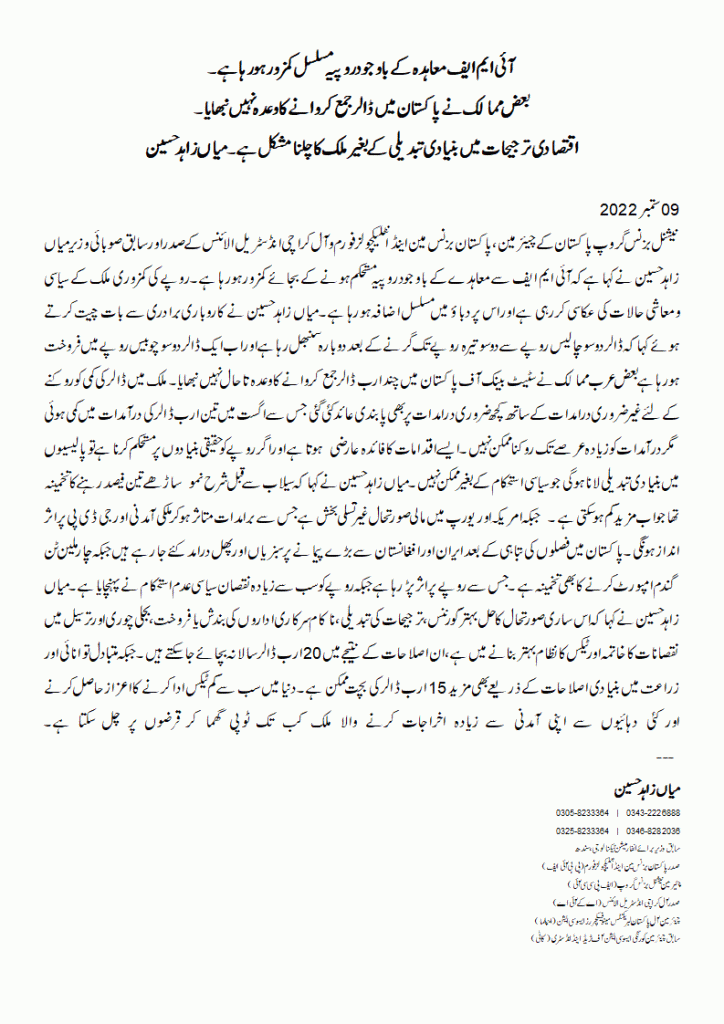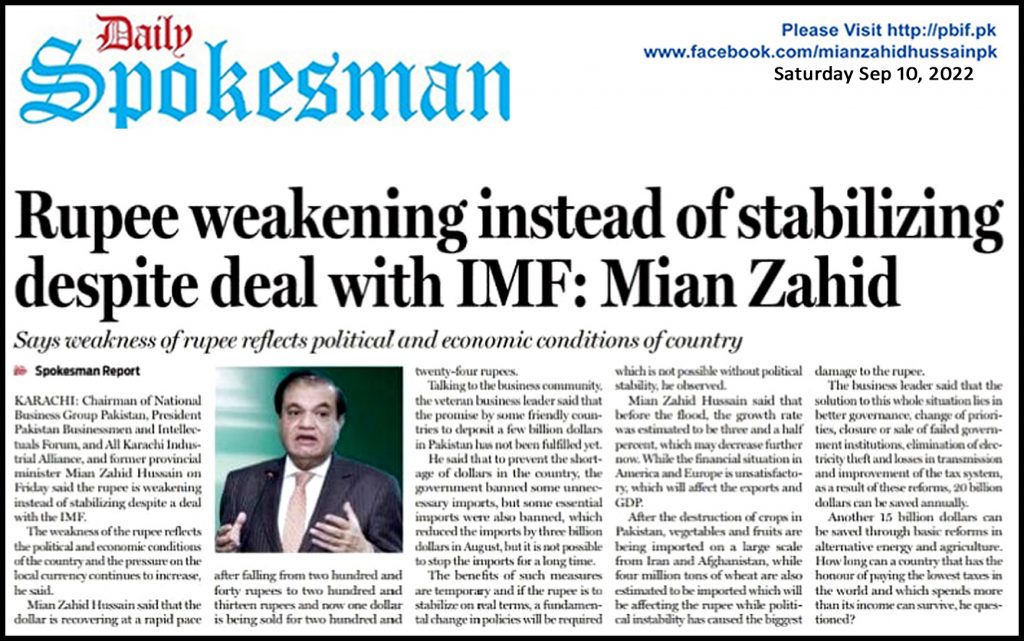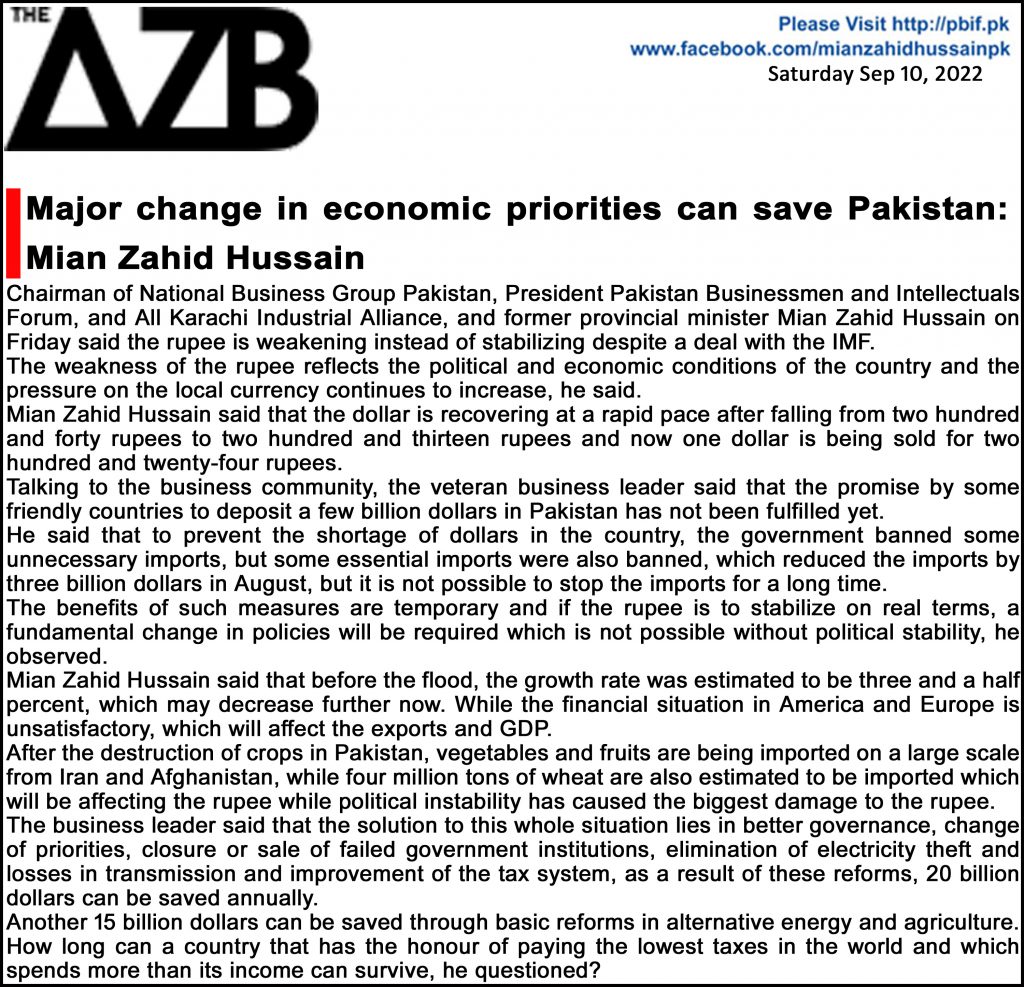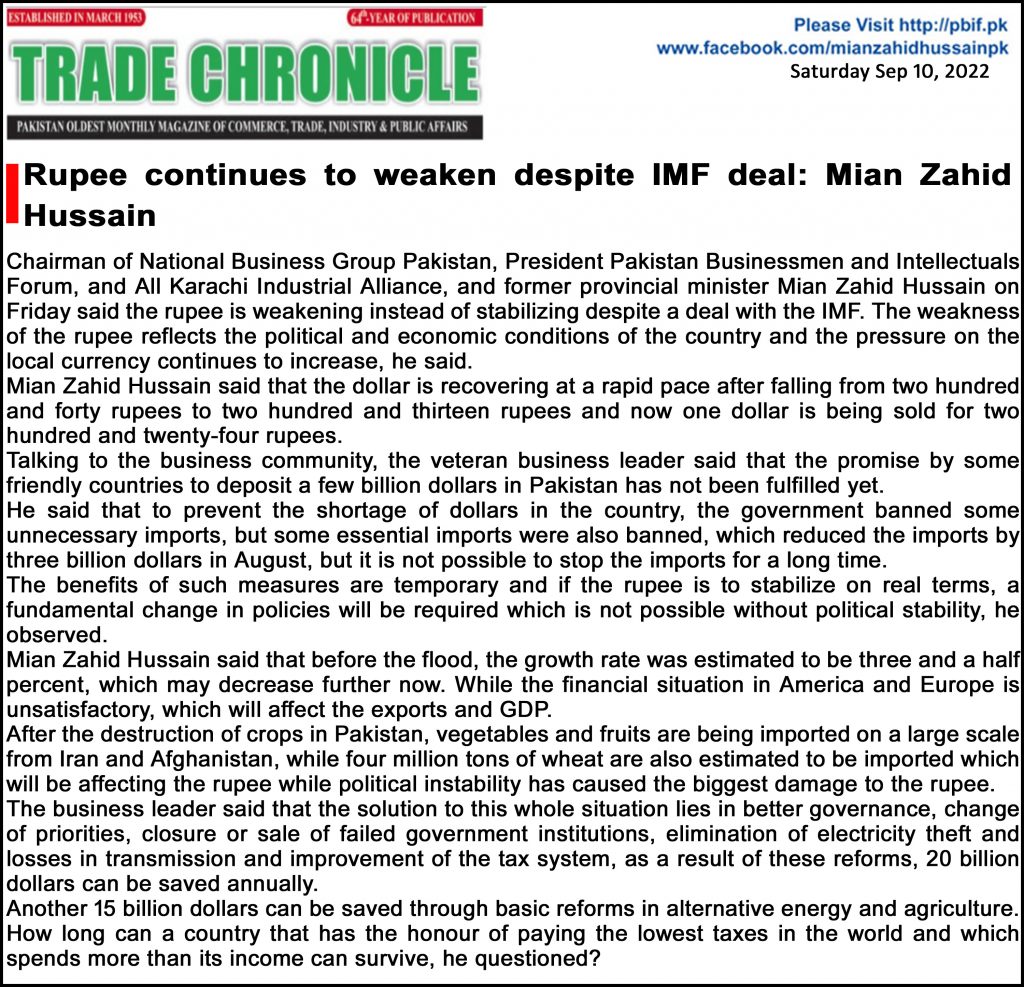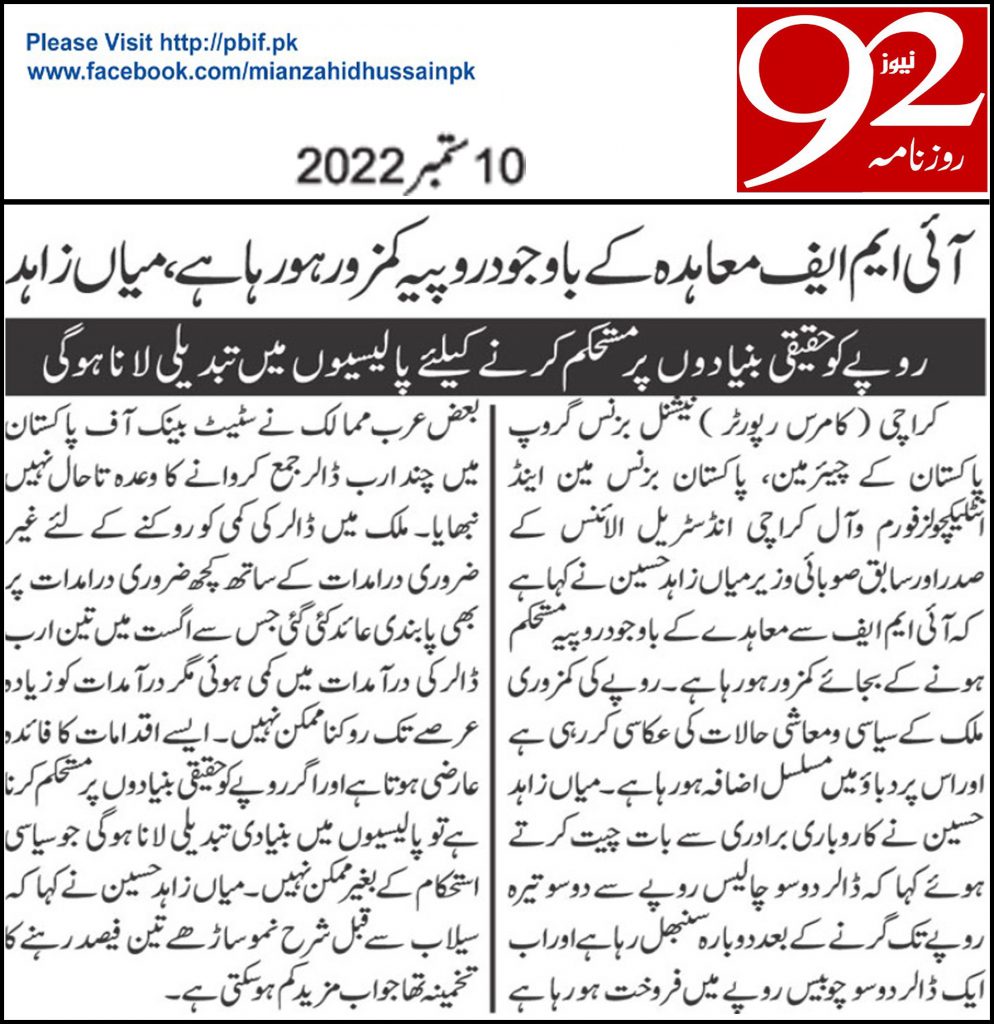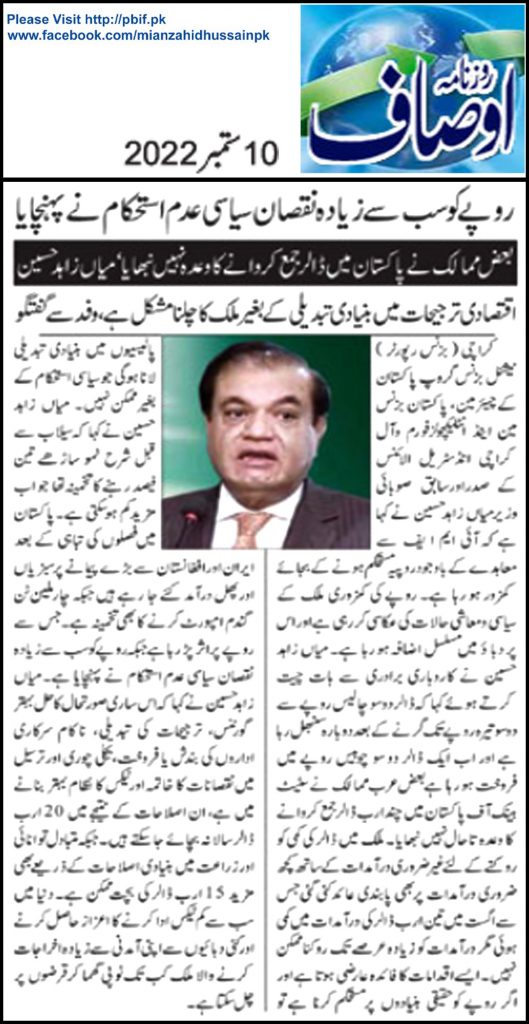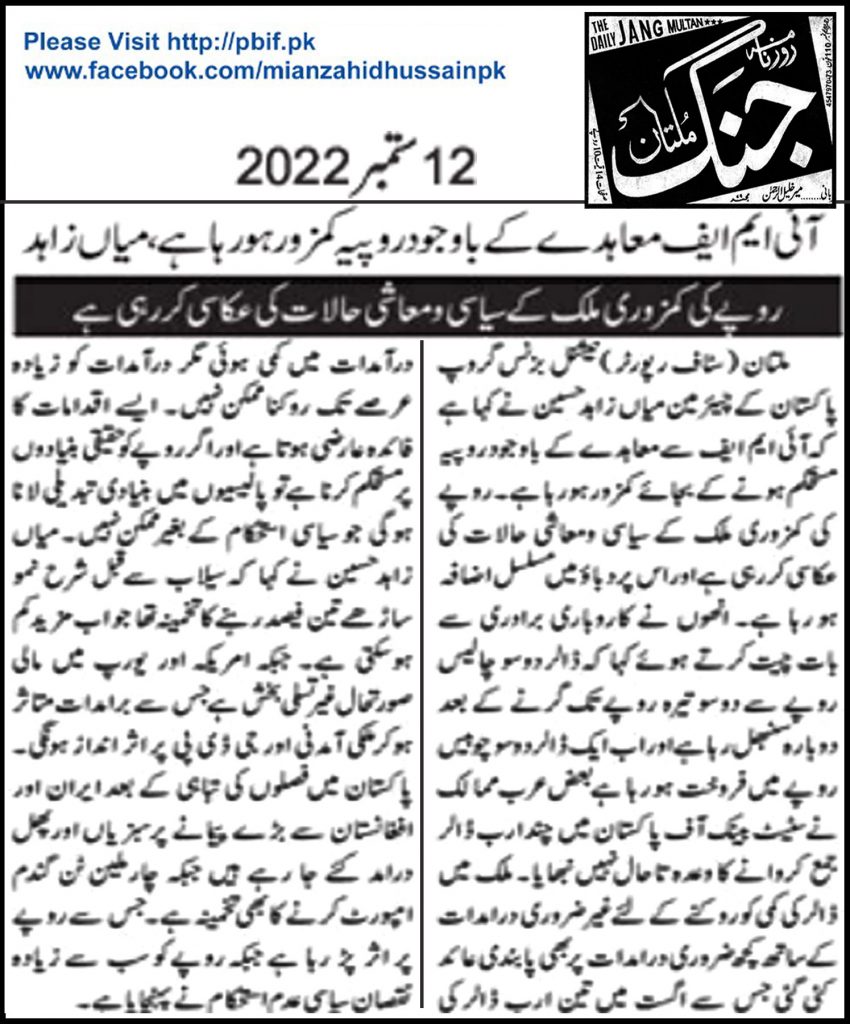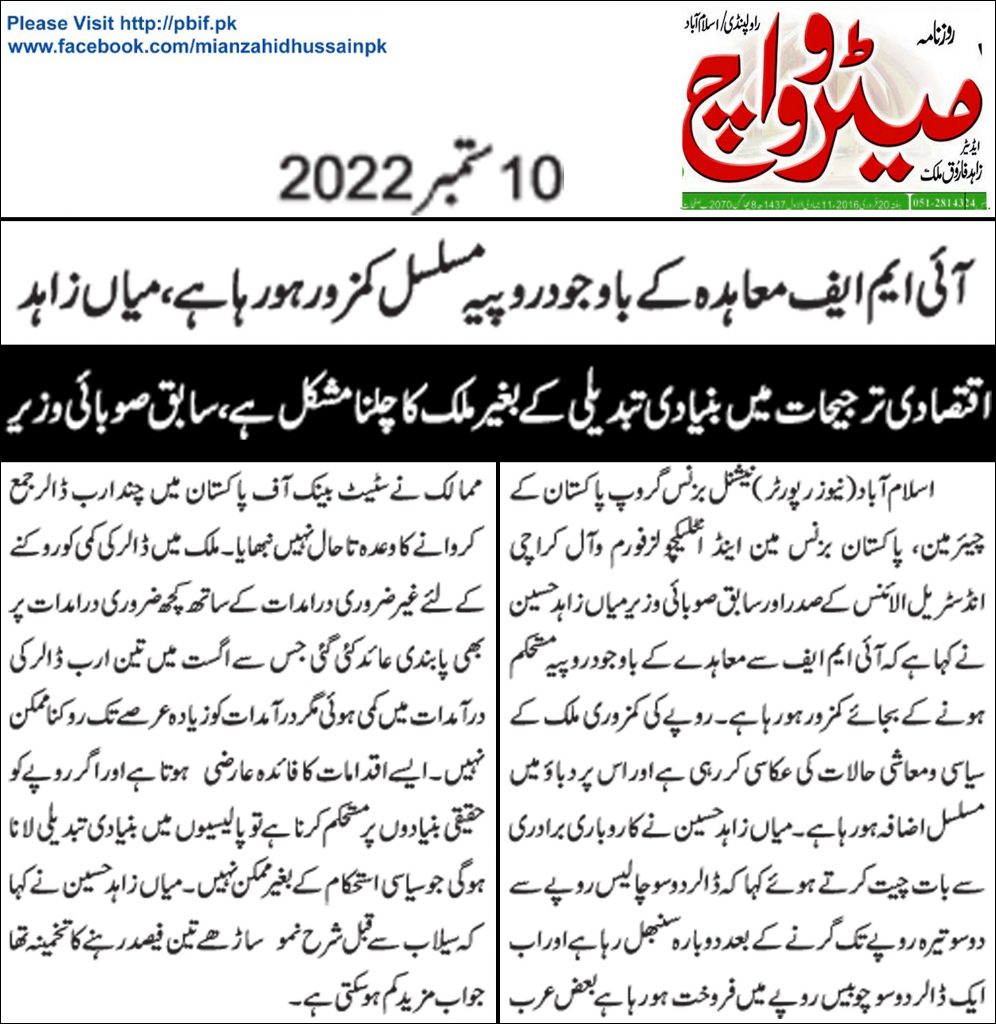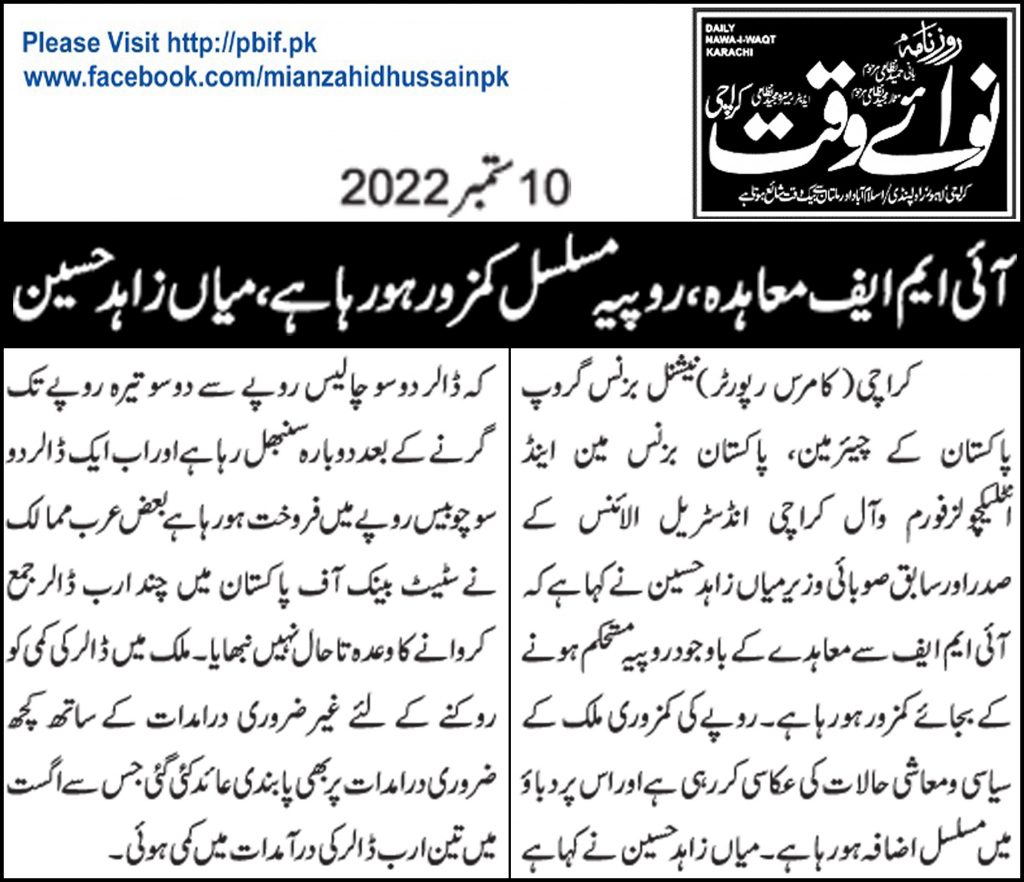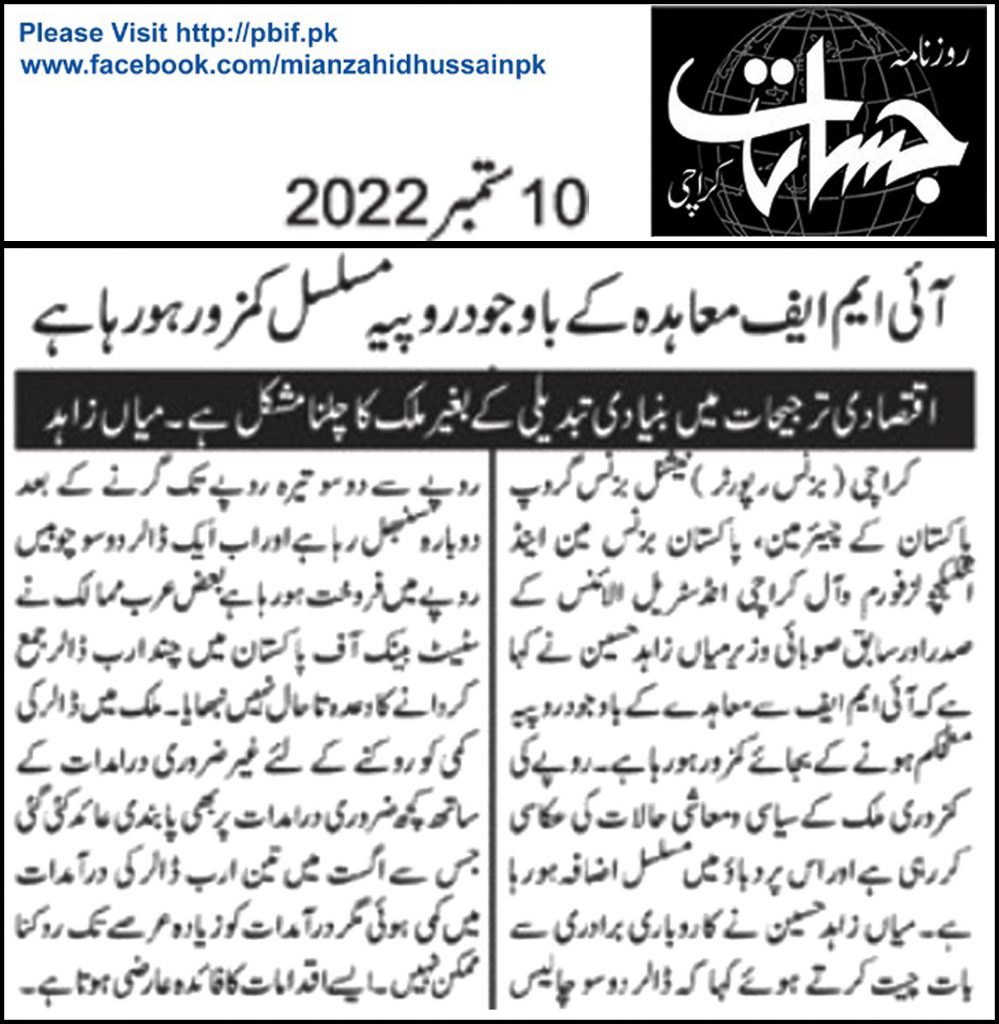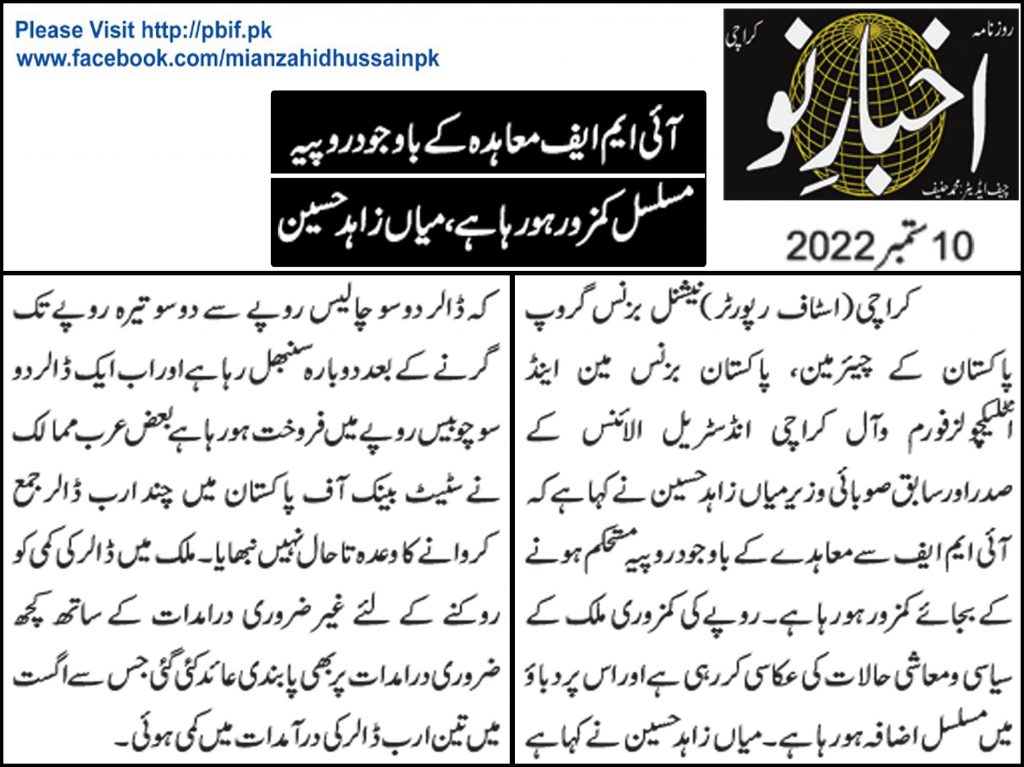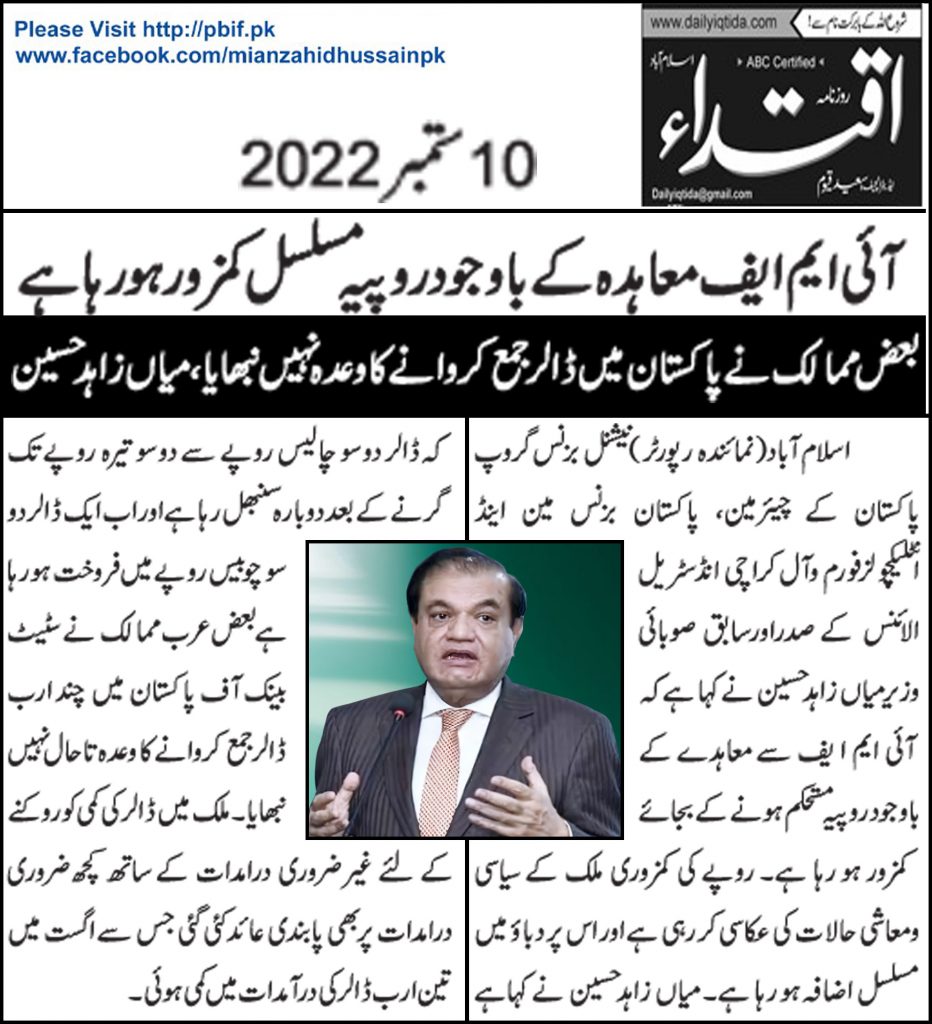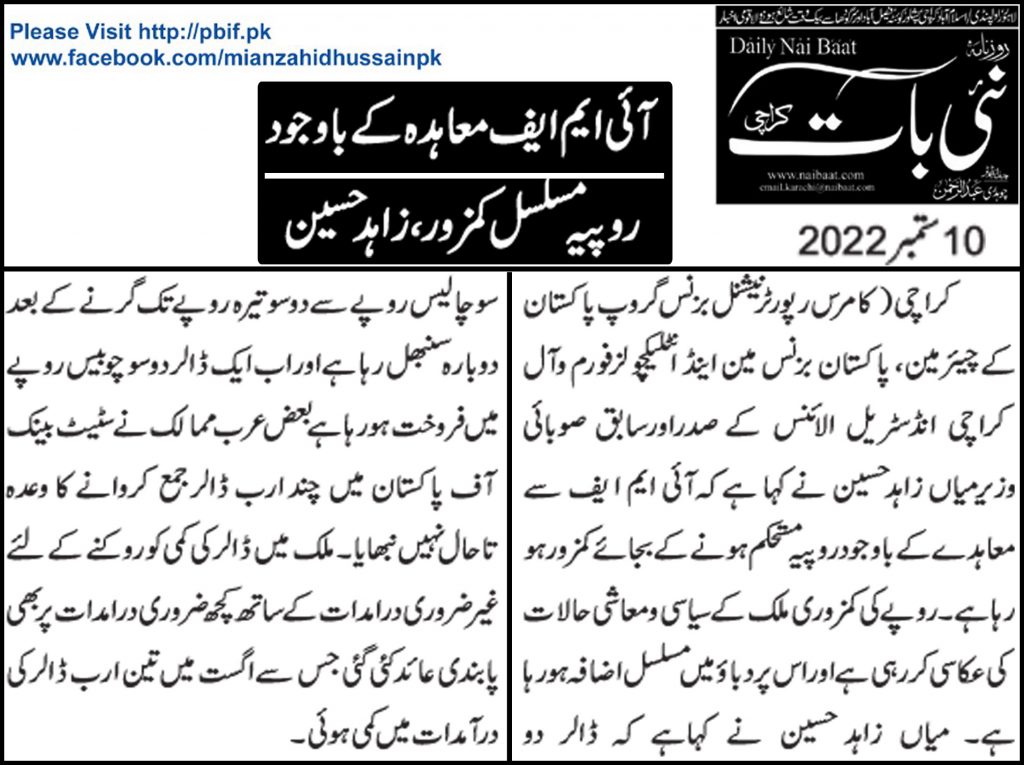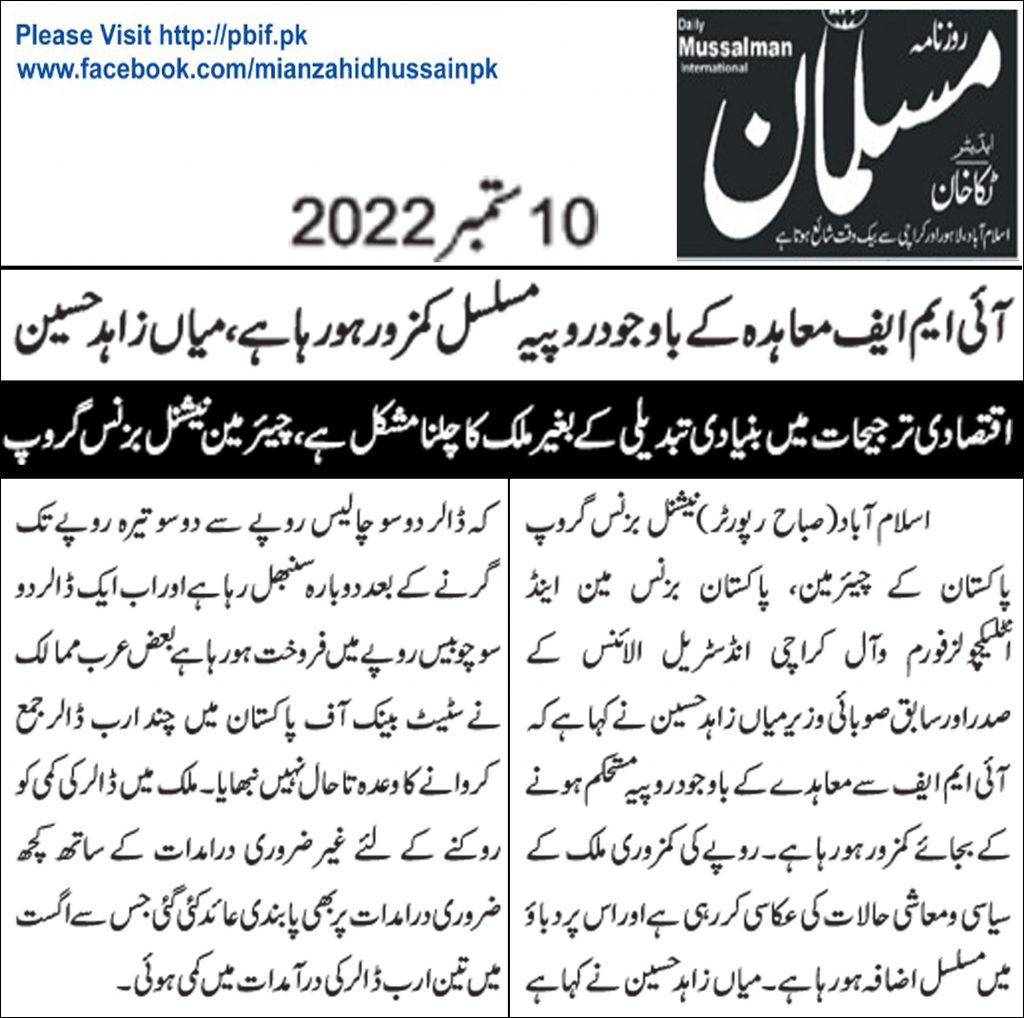(Sept 09-2022)
Chairman of National Business Group Pakistan, President Pakistan Businessmen and Intellectuals Forum, and All Karachi Industrial Alliance, and former provincial minister Mian Zahid Hussain on Friday said the rupee is weakening instead of stabilizing despite a deal with the IMF.
The weakness of the rupee reflects the political and economic conditions of the country and the pressure on the local currency continues to increase, he said.
Mian Zahid Hussain said that the dollar is recovering at a rapid pace after falling from two hundred and forty rupees to two hundred and thirteen rupees and now one dollar is being sold for two hundred and twenty-four rupees.
Talking to the business community, the veteran business leader said that the promise by some friendly countries to deposit a few billion dollars in Pakistan has not been fulfilled yet.
He said that to prevent the shortage of dollars in the country, the government banned some unnecessary imports, but some essential imports were also banned, which reduced the imports by three billion dollars in August, but it is not possible to stop the imports for a long time.
The benefits of such measures are temporary and if the rupee is to stabilize on real terms, a fundamental change in policies will be required which is not possible without political stability, he observed.
Mian Zahid Hussain said that before the flood, the growth rate was estimated to be three and a half percent, which may decrease further now. While the financial situation in America and Europe is unsatisfactory, which will affect the exports and GDP.
After the destruction of crops in Pakistan, vegetables and fruits are being imported on a large scale from Iran and Afghanistan, while four million tons of wheat are also estimated to be imported which will be affecting the rupee while political instability has caused the biggest damage to the rupee.
The business leader said that the solution to this whole situation lies in better governance, change of priorities, closure or sale of failed government institutions, elimination of electricity theft and losses in transmission and improvement of the tax system, as a result of these reforms, 20 billion dollars can be saved annually.
Another 15 billion dollars can be saved through basic reforms in alternative energy and agriculture. How long can a country that has the honour of paying the lowest taxes in the world and which spends more than its income can survive, he questioned?
